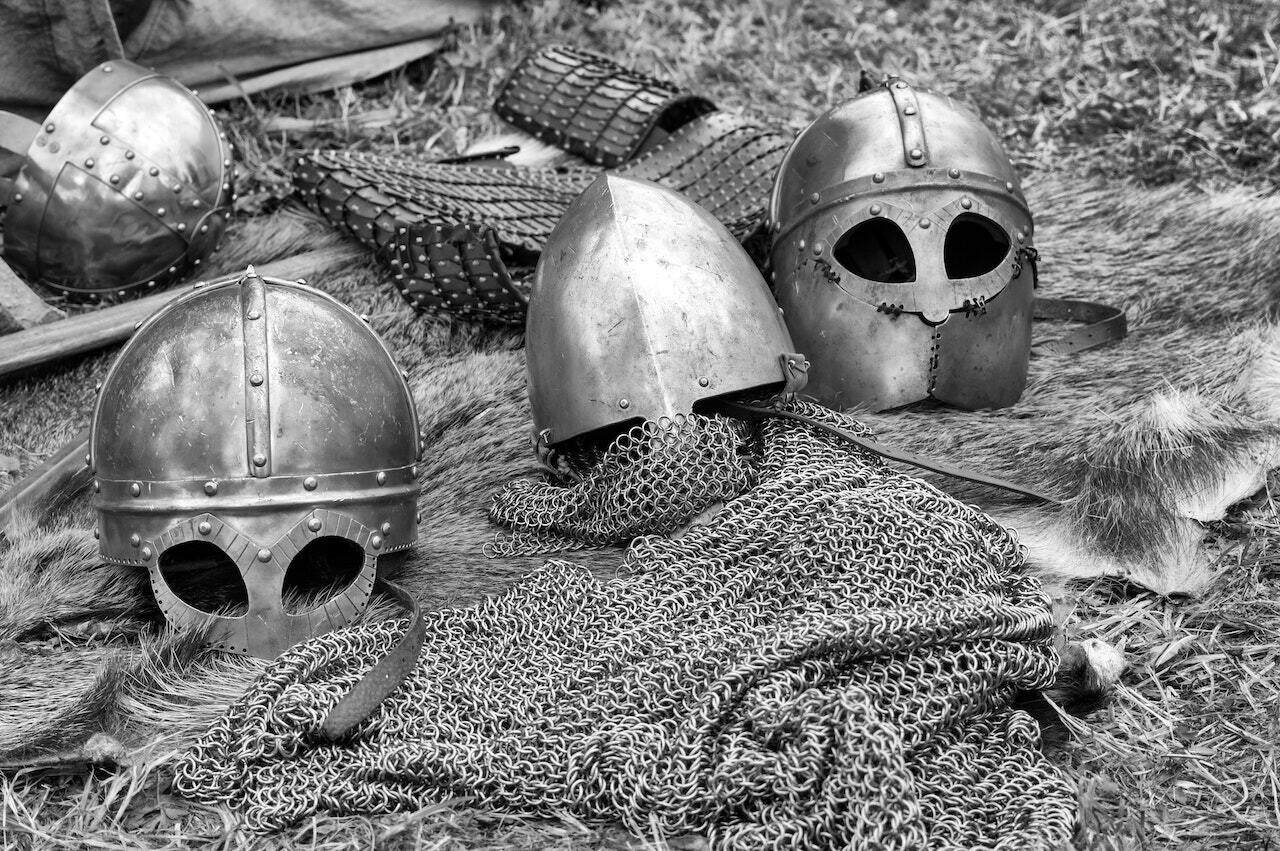
Historical accuracy is crucial for understanding our past. It helps us learn from previous mistakes, celebrate achievements, and appreciate cultural heritage. But how accurate is our knowledge of history? Many believe history is a straightforward recounting of events, but it's often more complex. Historians rely on various sources like documents, artifacts, and oral traditions to piece together the past. However, biases, incomplete records, and differing interpretations can cloud the truth. This blog post will explore 37 facts that highlight the challenges and triumphs in maintaining historical accuracy. From ancient civilizations to modern times, these facts will shed light on how we strive to keep history as accurate as possible.
Key Takeaways:
- Movies, books, TV shows, and even video games strive for historical accuracy, bringing the past to life with meticulous attention to detail and research.
- Art, music, and museums also play a crucial role in preserving and presenting history accurately, offering tangible connections to the past through visual and auditory mediums.
Historical Accuracy in Movies
Movies often take creative liberties with historical events. However, some strive for accuracy. Here are some fascinating facts about historical accuracy in films.
-
"Schindler's List": Steven Spielberg's film is praised for its meticulous attention to detail, including the use of black-and-white film to mimic historical footage.
-
"Apollo 13": The filmmakers consulted NASA to ensure the space mission's portrayal was as accurate as possible, even using real NASA equipment.
-
"Lincoln": Daniel Day-Lewis's portrayal of Abraham Lincoln was so precise that he stayed in character throughout filming, even off-camera.
-
"Saving Private Ryan": The D-Day landing scene is considered one of the most realistic war scenes ever filmed, with veterans praising its authenticity.
-
"12 Years a Slave": Based on Solomon Northup's memoir, the film's depiction of slavery in America is both harrowing and historically accurate.
Historical Accuracy in Literature
Books often serve as a window into the past. Authors painstakingly research to ensure their narratives align with historical facts.
-
"War and Peace": Leo Tolstoy's epic novel is renowned for its detailed depiction of the Napoleonic Wars, blending fiction with historical events.
-
"All the Light We Cannot See": Anthony Doerr's novel, set during World War II, is celebrated for its accurate portrayal of wartime France.
-
"The Book Thief": Markus Zusak's novel captures the essence of life in Nazi Germany, with meticulous attention to historical detail.
-
"Wolf Hall": Hilary Mantel's novel about Thomas Cromwell is praised for its historical accuracy, bringing the Tudor court to life.
-
"The Nightingale": Kristin Hannah's novel, set in Nazi-occupied France, is based on real events and people, making it a poignant historical read.
Historical Accuracy in TV Shows
Television series often have the luxury of time to delve deep into historical events, offering viewers an immersive experience.
-
"Band of Brothers": This miniseries, based on Stephen E. Ambrose's book, is lauded for its accurate portrayal of Easy Company during World War II.
-
"The Crown": The Netflix series about Queen Elizabeth II's reign is known for its attention to historical detail, even consulting royal experts.
-
"Chernobyl": The HBO miniseries about the 1986 nuclear disaster is praised for its meticulous research and realistic depiction of events.
-
"Mad Men": Set in the 1960s advertising world, the show is celebrated for its accurate portrayal of the era's social and cultural norms.
-
"Downton Abbey": The series, set in early 20th-century England, is known for its historical accuracy, from costumes to social customs.
Historical Accuracy in Museums
Museums play a crucial role in preserving and presenting history accurately. They offer tangible connections to the past.
-
The British Museum: Home to millions of artifacts, the museum is dedicated to preserving historical accuracy in its exhibits.
-
The Louvre: This Parisian museum houses thousands of historically significant artifacts, ensuring their accurate presentation.
-
The Smithsonian: Comprising multiple museums, the Smithsonian Institution is committed to historical accuracy in its vast collections.
-
The Vatican Museums: These museums preserve and display artifacts from the Catholic Church's history, ensuring their accurate representation.
-
The Metropolitan Museum of Art: Known for its extensive collection, the Met is dedicated to presenting history accurately through its exhibits.
Historical Accuracy in Documentaries
Documentaries aim to present factual information, often shedding light on lesser-known historical events.
-
"The Civil War": Ken Burns' documentary series is praised for its detailed and accurate portrayal of the American Civil War.
-
"Planet Earth": While primarily about nature, this documentary series is celebrated for its accurate depiction of Earth's history.
-
"13th": Ava DuVernay's documentary explores the history of racial inequality in the United States, backed by thorough research.
-
"The Fog of War": This documentary about Robert S. McNamara offers an accurate and insightful look into the complexities of war.
-
"Won't You Be My Neighbor?": This documentary about Fred Rogers accurately portrays his life and the impact of his television show.
Historical Accuracy in Video Games
Video games often blend entertainment with education, offering players a chance to experience history firsthand.
-
"Assassin's Creed": Known for its historical settings, the series meticulously recreates historical periods, from ancient Egypt to Renaissance Italy.
-
"Red Dead Redemption 2": Set in the late 1800s, the game is praised for its accurate depiction of the American frontier.
-
"Battlefield 1": This game, set during World War I, is celebrated for its realistic portrayal of the Great War.
-
"Total War": The series offers players a chance to experience historical battles, with a focus on accuracy in tactics and settings.
-
"Civilization VI": While a strategy game, it incorporates accurate historical leaders and events, offering an educational experience.
Historical Accuracy in Art
Art has always been a medium to capture and reflect historical events, offering a visual representation of the past.
-
"The Last Supper": Leonardo da Vinci's masterpiece is renowned for its accurate depiction of the biblical event.
-
"Guernica": Pablo Picasso's painting captures the horrors of the Spanish Civil War with striking accuracy.
-
"Washington Crossing the Delaware": Emanuel Leutze's painting, while romanticized, is based on a real historical event.
-
"The Death of Marat": Jacques-Louis David's painting accurately depicts the assassination of French revolutionary Jean-Paul Marat.
-
"Liberty Leading the People": Eugène Delacroix's painting captures the spirit of the French Revolution with historical accuracy.
Historical Accuracy in Music
Music often reflects the times in which it was created, offering insights into historical events and cultural shifts.
-
"The Star-Spangled Banner": The U.S. national anthem, written during the War of 1812, accurately reflects the historical context of its creation.
-
"Strange Fruit": Billie Holiday's song about lynching in America is a hauntingly accurate reflection of racial violence in the early 20th century.
The Final Word on Historical Accuracy
Historical accuracy matters. It shapes our understanding of the past, influences present decisions, and guides future actions. Misrepresentations can lead to misconceptions, altering how we perceive events and figures. Accurate history helps us learn from past mistakes, celebrate genuine achievements, and appreciate diverse cultures.
When consuming historical content, always check sources. Look for primary documents, reputable historians, and peer-reviewed articles. Question sensationalized stories or those with obvious biases. Remember, history isn't just about dates and events; it's about understanding the context and the people who lived through those times.
By valuing accuracy, we honor those who came before us and ensure their stories are told truthfully. So next time you read a historical account or watch a period film, think critically. Your effort to seek the truth makes a difference.
Frequently Asked Questions
Was this page helpful?
Our commitment to delivering trustworthy and engaging content is at the heart of what we do. Each fact on our site is contributed by real users like you, bringing a wealth of diverse insights and information. To ensure the highest standards of accuracy and reliability, our dedicated editors meticulously review each submission. This process guarantees that the facts we share are not only fascinating but also credible. Trust in our commitment to quality and authenticity as you explore and learn with us.


